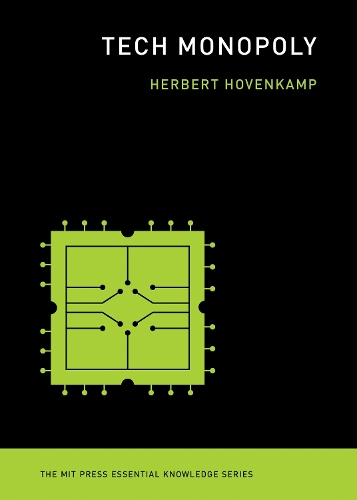
Tech Monopoly
(Paperback)
Publishing Details
Tech Monopoly
By (Author) Herbert Hovenkamp
MIT Press Ltd
MIT Press
10th September 2024
1st August 2024
United States
Classifications
General
Non Fiction
343.730721
Physical Properties
Paperback
224
Width 127mm, Height 178mm
Description
In recent years, the astronomical rise of tech giants like Amazon, Apple, Meta, and Microsoft has been criticized as anticompetitive, and many have wondered if antitrust law can help protect workers and consumers. In Tech Monopoly, Herbert Hovenkamp explores competition problems in a wide range of high-tech firms-from those that sell purely digital products, such as video streaming, search, software, or email services, to others that sell more traditional "tactile" products, such as hardware, clothing, groceries, or rides. He offers a realistic look at the powers and limitations of antitrust law in tech markets with an assessment that is as comprehensive as it is accessible. After a general introduction to antitrust law, Tech Monopoly considers how competitive harm should be assessed in these markets, as well as some features that make these markets unique, including "two-sided" structures. Then Hovenkamp looks at the role of large digital platforms, including Amazon, Alphabet, Apple, Meta, and Microsoft, and considers whether their size alone is an antitrust problem or if the concern should be limited to market power. Finally, the author addresses the very difficult problem of remedies. Should we "break up" big tech, and if so, how What kind of breakup of these firms would make users or others better off And if breakups are not the only possible antitrust fix, are there more effective and less disruptive alternatives Offering simple explanations of the complex economics of digital platform markets, Tech Monopoly is an important read for anyone who wishes to understand how antitrust law works and whether it can help defend competition in the formidable era of big tech. A serious look at competition problems in tech markets and whether antitrust law can help address them. In recent years, the astronomical rise of tech giants like Amazon, Apple, Meta, and Microsoft has been criticized as anticompetitive, and many have wondered if antitrust law can help protect workers and consumers. In Tech Monopoly, Herbert Hovenkamp explores competition problems in a wide range of high-tech firms-from those that sell purely digital products, such as video streaming, search, software, or email services, to others that sell more traditional "tactile" products, such as hardware, clothing, groceries, or rides. He offers a realistic look at the powers and limitations of antitrust law in tech markets with an assessment that is as comprehensive as it is accessible. After a general introduction to antitrust law, Tech Monopoly considers how competitive harm should be assessed in these markets, as well as some features that make these markets unique, including "two-sided" structures. Then Hovenkamp looks at the role of large digital platforms, including Amazon, Alphabet, Apple, Meta, and Microsoft, and considers whether their size alone is an antitrust problem or if the concern should be limited to market power. Finally, the author addresses the very difficult problem of remedies. Should we "break up" big tech, and if so, how What kind of breakup of these firms would make users or others better off And if breakups are not the only possible antitrust fix, are there more effective and less disruptive alternatives Offering simple explanations of the complex economics of digital platform markets, Tech Monopoly is an important read for anyone who wishes to understand how antitrust law works and whether it can help defend competition in the formidable era of big tech.
Author Bio
Herbert Hovenkamp is the James G. Dinan University Professor at the University of Pennsylvania Carey Law School and the Wharton School. He is a Fellow of the American Academy of Arts and Sciences, and in 2008, he won the Justice Department's John Sherman Award for lifetime contributions to antitrust law.
